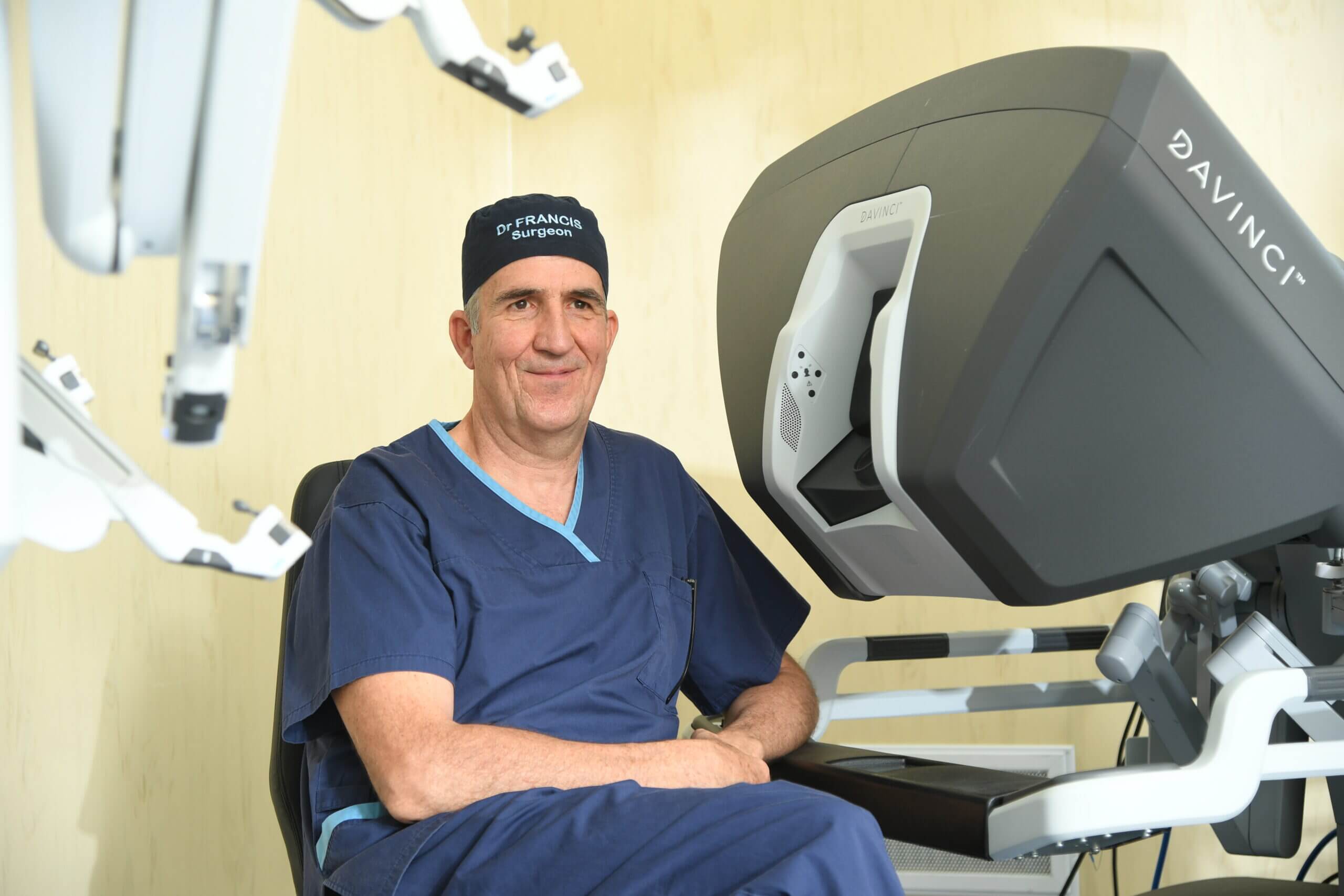Dr Francis Hall is Head of the Department of Otolaryngology Head and Neck Surgery at Counties Manukau DHB. He has a private practice in Auckland. He is a New Zealand trained ORL head and neck surgeon with extensive additional overseas training in head and neck surgery in Toronto, Sydney and Melbourne. He worked for five years as a head and neck / thyroid surgeon at Henry Ford Hospital in Detroit. He is an accomplished writer and presenter and loves to share his experiences with fellow specialists and general practitioners.
Radiofrequency Ablation of Thyroid Nodules
In the last edition of GP Voice, evaluation of thyroid nodules was discussed. An overview of the treatment of thyroid nodules was given. At the end of the article, radiofrequency ablation of thyroid nodules was mentioned. Most doctors are familiar with the option of thyroidectomy. I imagine many doctors are not aware of the option of radiofrequency ablation (RFA) of thyroid nodules. For this reason, I thought it was timely to discuss.
What is radiofrequency ablation and how does it work?
Radiofrequency causes ions within the tissue to oscillate which in turn generates heat. This heat causes necrosis of the targeted cells. Radiofrequency results in heating of the targeted tissue to 60 degrees Celsius. This is sufficient to cause the targeted tissue to die.
How is radiofrequency ablation of a thyroid nodule performed?
Radiofrequency ablation is done under local anaesthesia as an outpatient procedure. A 19-gauge radiofrequency probe is inserted into the targeted nodule under ultrasound guidance. Using a “moving shot” technique all areas of the nodule are targeted. Hydro dissection may be performed at the same time to create a fluid barrier between the nodule and any important structures.
What are the advantages of radiofrequency ablation?
Radiofrequency ablation is a non-surgical scarless procedure to treat thyroid nodules.
The thyroid nodule is treated and only the thyroid nodule. There is no damage to adjacent thyroid tissue and thyroid tissue is not removed. And there is no need to take thyroid tablets after the procedure.
Which thyroid nodules are suitable for radiofrequency ablation?
Not all thyroid nodules are suitable for radiofrequency ablation. Benign thyroid nodules that are causing symptoms such as a pressure feeling in the lower neck, or the feeling of a lump in the throat are suitable for this procedure. Some patients with a benign thyroid nodule may choose RFA to treat their nodule for cosmetic reasons. Thyroid nodules that are making too much thyroid hormone (autonomous functioning thyroid nodules / autonomous hot thyroid nodules) are very suitable for RFA. Very small thyroid cancers measuring less than 1 cm in size (called microcarcinomas) are also suitable for RFA.
In summary the following nodules are suitable for RFA:
1. Symptomatic benign thyroid nodules (preferably less than 6cm in size)
2. Autonomous functioning thyroid nodules.
3. Microcarcinomas (<1cm) of the thyroid
4. Patients with benign thyroid nodules and cosmetic concerns.
What to expect after RFA
There may be some discomfort afterwards from the procedure which is easily managed with paracetamol (Panadol) and ibuprofen (an anti-inflammatory).
Patients with an office-based job can return to work the following day. Patients who do heavy manual work, can return to work two days after the procedure.
Over the subsequent few months, the thyroid nodule shrinks dramatically in size.
What investigations are required before RFA?
All patients under radiofrequency ablation need the following three tests:
1. Thyroid function tests
2. Ultrasound scan of the thyroid
3. FNA of the thyroid nodule.
RFA versus ethanol ablation of thyroid nodules.
RFA is an effective recognised treatment for solid thyroid nodules.
Ethanol ablation is the treatment of choice for thyroid cysts. Most (80%) of thyroid cysts recur after aspiration. Over 90% of thyroid cysts do not recur after drainage and ethanol ablation.
RFA (Radio Frequency Ablation) summary.
Radiofrequency ablation is an effective, approved treatment for patients with some thyroid nodules. The main advantages of RFA are that it is a scarless procedure performed under local anaesthesia with a fast recovery time. For further information on accessing the treatment for your patients, contact Dr Francis Hall on francis@drfrancishall.co.nz .
References:
1. Kim JH, et al. 2017 Thyroid Radiofrequency Ablation Guidelines: Korean Society of Thyroid Radiology. Korean J Radiol. 2018; 19(4): 632-655.
2. Papini E, et al. 2020 European Thyroid Association Clinical Practice Guideline for the Use of Image-Guided Ablation in Benign Thyroid Nodules. Eur Thyroid J 2020; 9:172-185.
3. Hahn SY, et al. Ethanol Ablation of the Thyroid Nodules: 2018 Consensus Statement of the Korean Society of Thyroid Radiology. Korean J Radiol. 2019; 20(4): 609-620.


